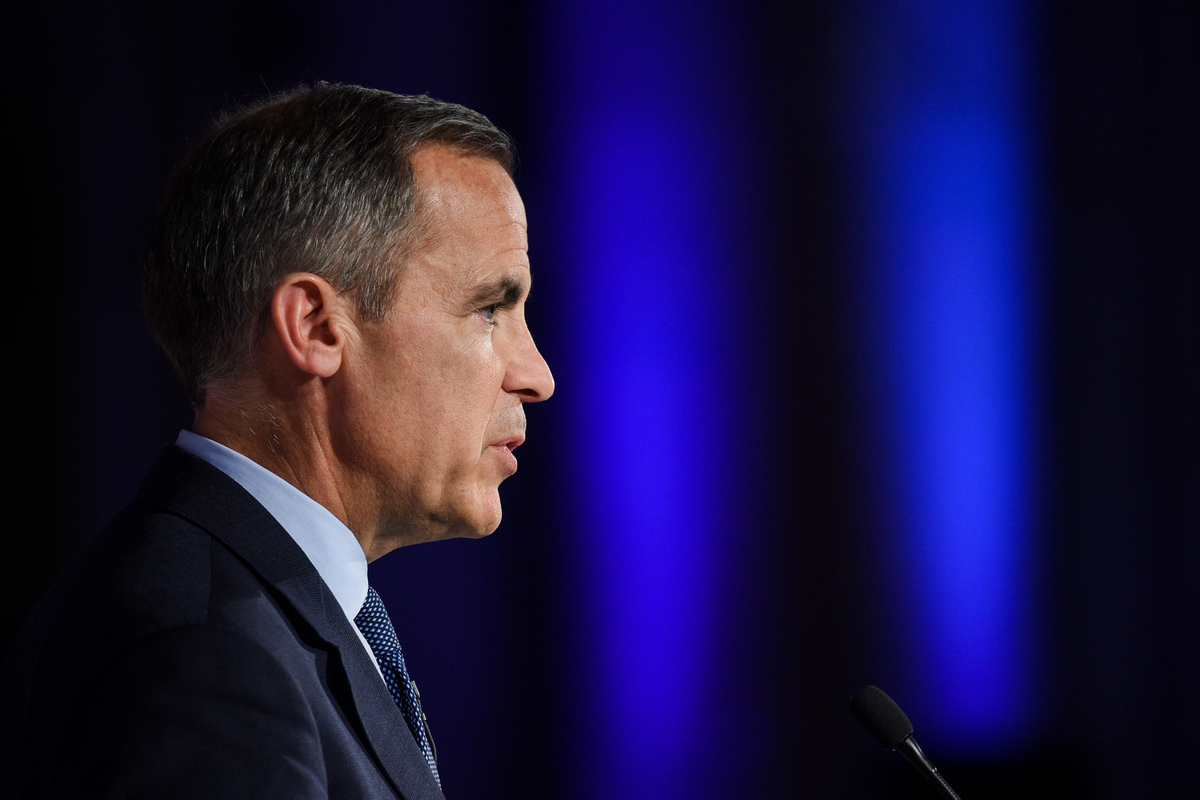
Mark Carney doubled down on his warning that anything less than a smooth Brexit transition risks wreaking financial disruption and economic pain.
The Bank of England governor used a press conference after the results of bank stress tests on Tuesday to call for a handover period as the U.K. leaves the European Union, and said lenders will need at least 18-24 months.
“We have been reviewing the contingency plans, transition plans of all the financial institutions based here, both outbound and inbound if you will, and I would say that the 24 months period remains a good estimate given where we are today. The timing of achieving a transition agreement -- the sooner the better.”
Carney has spent more than a year facing criticism from some U.K. lawmakers for appearing to take sides in the Brexit debate and being too negative in his forecasts. Yet in an October speech to celebrate 20 years of BOE independence, he told an audience including Prime Minister Theresa May that he would continue to express his views and identify relevant risks.
One of those issues -- which he said is not the BOE’s base assumption because it is “in nobody’s interest” -- would be a disorderly divorce.
“This is not a good scenario. It’s a scenario we should -- we are -- all working to avoid, because it has some quite material economic costs. Even if the financial system continues to function through it.”
Asked about the potential consequences, at least in the short term, Carney listed “slower growth, higher unemployment, higher inflation, lower sterling, higher interest rates, all things being equal.”
The stress tests of the nation’s seven major banks showed that they were mostly well positioned to cope with any slump in economic growth, house prices and the exchange rate. Barclays Plc and Royal Bank of Scotland Group Plc were the weakest, although they weren’t ordered to raise any additional capital or change their strategies in light of actions they’ve made since the end of last year.
Read more on the BOE’s plans for building up bank buffers
The central bank is also going ahead with a planned increase in a key financial safety measure, the countercyclical capital buffer, to 1 percent from 0.5 percent, and will review the level again early next year. Carney said lenders would be able to draw on their capital buffers and continue to lend in order to avoid any amplification of a Brexit shock, but they wouldn’t be able to entirely counter the impact.
“In the event of a sharp, disorderly Brexit there will be an economic impact on households, on businesses, there will be lost markets for a period before new markets are found, and there will be some pain associated with that. This is about dampening that, minimizing it, doing what we can in terms of the financial sector.”
Among specific risks, the BOE’s report estimated that six million U.K. and 30 million European Economic Area insurance policyholders, and around 26 trillion pounds ($35 trillion) of outstanding uncleared derivatives contracts -- up from a previous estimate of 20 trillion pounds -- could be affected if no agreement is reached on existing cross-border contracts.
Carney said the U.K. central bank has worked to provide more detail on the Brexit risks for the financial sector and propose potential mitigating actions. In short though, he urged negotiators to ensure that regulators and financial institutions have the time they need.
“Much of this would be made considerably easier by a material transition period,” he said. “I think that is increasingly appreciated on both sides of the channel.”
--With assistance from Piotr Skolimowski David Goodman Catherine Bosley and Fergal O'Brien
To contact the reporters on this story: Lucy Meakin in London at lmeakin1@bloomberg.net, Jill Ward in London at jward98@bloomberg.net.
To contact the editors responsible for this story: Paul Gordon at pgordon6@bloomberg.net, Kevin Costelloe
©2017 Bloomberg L.P.







